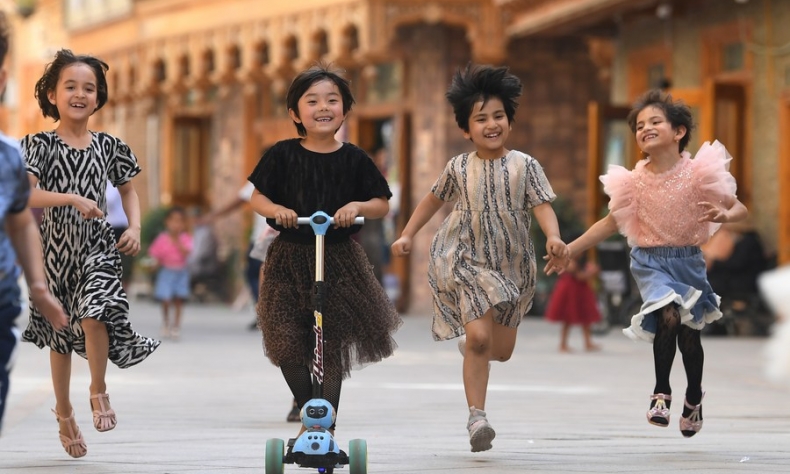Two Votes, Two Standards

It’s time the U.S. and several other Western forces abandon their political manipulation, disinformation and suppression, return to the track of dialogue and cooperation, and make real contributions to the global advancement of human rights.
On October 6, the 51st regular session of the UN Human Rights Council (UNHRC) rejected a draft decision tabled by the U.S., the UK and several other countries, which intended to hold a debate on the situation of human rights in China’s Xinjiang Uygur Autonomous Region at the 52nd session of the UNHRC in March 2023.
Looking beneath the surface, one might argue that the underlying intention of the U.S. and consorts calling for a debate was in fact an attempt to minimize resistance and vigilance from other member states and to take advantage of the UN human rights bodies to interfere in China’s internal affairs, manipulate international public opinion and contain China’s development.
Before the voting, Chen Xu, head of the Chinese Mission to the UN in Geneva, made it clear in his speech that the draft decision was not pro-human rights, but pro-political manipulation. He mentioned that, over the last six decades, the Uygur population in Xinjiang expanded from 2.2 million to around 12 million, average life expectancy increased from 30 to 74.7, and the region has seen no violent and terrorist incidents for five consecutive years.
Yet the U.S. seemingly turns a blind eye to these facts and has continually opted to spread false “genocide” rumors.
Chen further pointed out all country-specific resolutions of the UNHRC are thus far aimed at developing countries. “The U.S. and some other countries, in disregard of their own serious human rights violations, indulge in pointing the finger at others. This is [a typical case of] double standards.” One of his statements received wide media coverage: This time around, China is the target; anytime in the future, this could be any other developing country.
Resulting in 19 votes against, 17 in favor and 11 abstentions, the draft resolution was rejected. Interesting fact: Many Islamic countries continued to express their support for China on Xinjiang-related issues despite some Western politicians’ unfounded accusations that Uygurs in Xinjiang, mostly Muslims, are “oppressed by the Chinese Government.” Most of those voting against were in fact countries with predominantly Muslim populations, including Indonesia, Sudan, the United Arab Emirates and Qatar.

As the majority of the UNHRC membership took a clear-cut stand against the U.S. proposal, their voices should not be ignored. The reason they voted “no” is that they can see how the Xinjiang-related draft decision is yet another example of the politicization and instrumentalization of human rights issues.
For decades, human rights issues have been used by the West as a pretext to meddle in other countries’ internal affairs. Most countries voting “yes” on October 6 were part of the alliance that
invaded Iraq, Libya and Syria under the banner of human rights but left nothing but devastation behind.
Then there was the outcome of another draft vote that deserves some delving into. On October 7, a collective of African countries submitted a resolution on anti-racism—From Rhetoric to Reality: A Global Call for Concrete Action Against Racism, Racial Discrimination, Xenophobia and Discrimination, calling on the U.S. and other developed countries to abandon racial discrimination and treat people from other parts of the world as equals.
The resolution was passed with an overwhelming majority of 32 votes in favor, 9 against and 6 abstentions. The U.S. voted against. As a country with a history of racial segregation and armed aggression, apart from verbal repentance, the U.S. doesn’t appear to have seriously reflected on its own human rights issues.
As a spokesperson for the Chinese Foreign Ministry remarked on October 6, the issues the Human Rights Council truly needs to focus on are the serious human rights violations on the part of the U.S., the UK and some Western forces. These abuses include bouts of systemic racism and racial discrimination, violating the rights of refugees and migrants, and mass killings of innocent civilians in overseas military operations.
It’s time the U.S. and several other Western forces respond to the mainstream call of the international community to abandon their political manipulation, disinformation and suppression, return to the track of dialogue and cooperation, and make real contributions to the global advancement of human rights.
 Facebook
Facebook
 Twitter
Twitter
 Linkedin
Linkedin
 Google +
Google +










